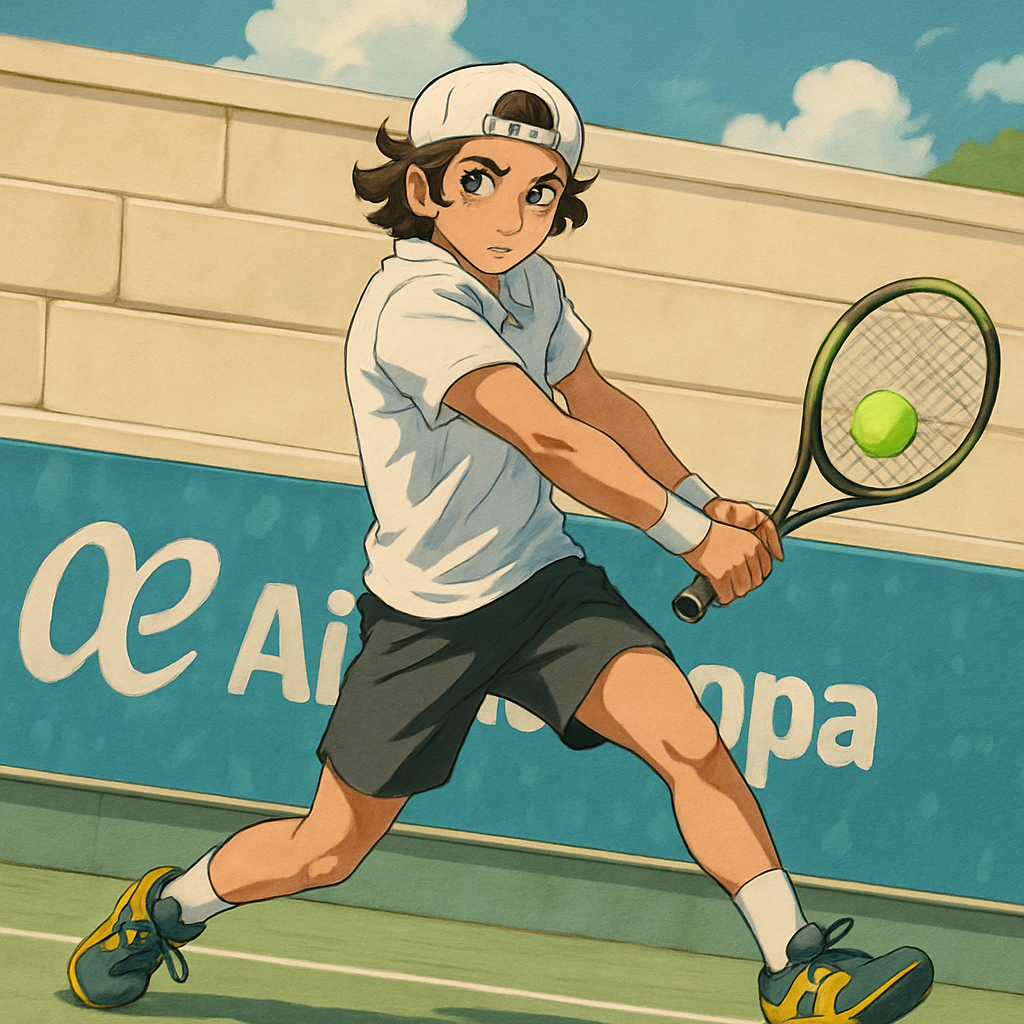MADRID — Rising tennis star Imran Sibille, a former graduate of the prestigious Rafael Nadal Academy, has been handed a four-year suspension after testing positive for a banned substance. The 22-year-old French player, who once faced Andy Murray in a high-profile match, now faces a career-threatening ban following the doping violation.
The International Tennis Integrity Agency (ITIA) confirmed the suspension on Tuesday, stating that Sibille tested positive for "a prohibited anabolic agent" during an out-of-competition test in late 2023. The substance, identified as "metandienone," is classified as a performance-enhancing drug under the World Anti-Doping Agency (WADA) code.
Sibille, who reached a career-high ATP ranking of No. 178 last year, had been considered one of the most promising talents to emerge from the Nadal Academy. His suspension comes just months after a breakthrough performance at the 2023 Moselle Open, where he pushed former world No. 1 Andy Murray to three sets in a thrilling first-round encounter.
The Failed Test and Investigation
According to the ITIA report, Sibille’s sample was collected on October 12, 2023, during an unannounced doping control. The lab analysis confirmed the presence of metandienone, a synthetic steroid known for its muscle-building effects. Sibille denied intentional use, claiming contamination, but the ITIA rejected his defense due to insufficient evidence.
The ITIA stated in its ruling: "The player failed to provide credible evidence to support his claim of inadvertent ingestion. The presence of the prohibited substance in his sample constitutes a clear anti-doping rule violation."
Key findings from the investigation include:
- No prior doping violations on Sibille’s record
- No evidence of a contaminated supplement
- High concentration of the substance, suggesting deliberate use
Rafael Nadal Academy Responds
The Rafael Nadal Academy, where Sibille trained from 2018 to 2021, issued a statement distancing itself from the incident. "The academy maintains a zero-tolerance policy toward doping. All players undergo rigorous education on anti-doping regulations," a spokesperson said.
Sibille had been one of the academy’s standout prospects, earning praise from Nadal himself in 2020. "Imran has the work ethic and talent to go far," Nadal had said in an interview. Now, his career hangs in the balance.
Reactions from the Tennis World
Andy Murray, who faced Sibille in Metz last year, expressed disappointment. "It’s always sad to see a young player make choices that harm their career. I hope he learns from this," Murray told reporters.
Other players, including rising star Luca Van Assche, voiced support for strict anti-doping measures. "Clean sport is non-negotiable. The rules are clear, and everyone must follow them," Van Assche said.
What’s Next for Sibille?
Sibille’s ban is effective from November 2023, meaning he will be ineligible to compete until late 2027. He retains the right to appeal to the Court of Arbitration for Sport (CAS), but legal experts consider his chances slim given the ITIA’s findings.
His suspension marks a dramatic fall for a player once tipped for the top 100. With his ranking set to plummet, Sibille faces an uncertain future in professional tennis.
The case also raises questions about doping in lower-tier tennis circuits. "We must remain vigilant at all levels of the sport," ITIA CEO Karen Moorhouse emphasized in a press briefing.
As the tennis world digests the news, Sibille’s story serves as a cautionary tale for young athletes navigating the pressures of professional sports.

